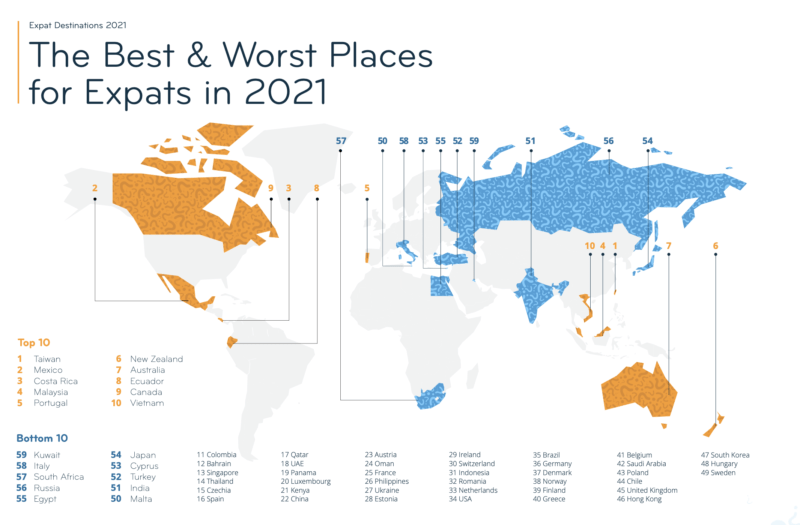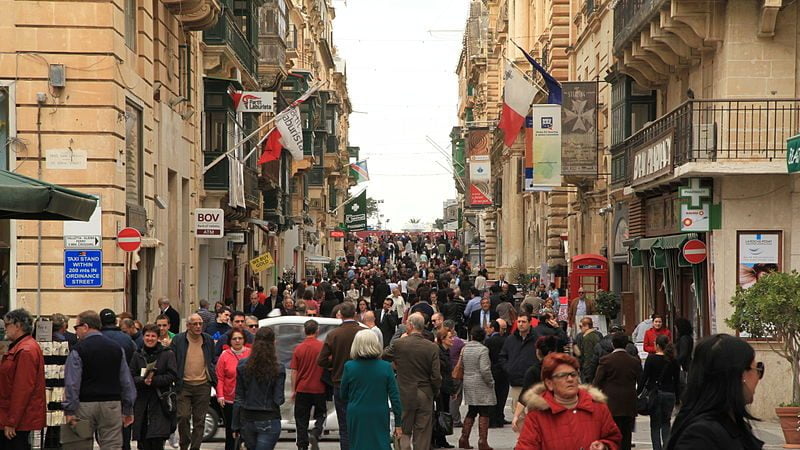Malta announced earlier this year it would seek to attract so-called ‘digital nomads’ to move to the island through a new temporary residence scheme offering non-EU applicants a one-year visa allowing them to live and work from the island. However, a survey by Expat Insider, published in May this year, may disappoint those promoting the plan: the results show Malta among the bottom 10 countries for Expats in 2021, in 50th place out of 59 countries.
The results represent a steep and steady decline for Malta, which has slipped consistently since it was ranked 4th in 2015 and 2016. Between 2018 and 2019, it had dropped a further 11 places from 25th to 36th place. This plunge has seen the island drop from the top 5 to the bottom 10 in just five years.
The plummet in Malta’s ratings could affect its success in implementing the government’s digital nomad scheme, which aims to attract non-EU business owners and remote workers to move to Malta temporarily on a one-year visa costing €300.
The survey was carried out by InterNations, one of the largest global expat networks with over 4.2 million members worldwide. In January this year 12,420 expats participated in the survey representing 174 nationalities and living in 186 countries or territories.
The five major categories that contribute to the overall country ranking are ‘Quality of Life’, ‘Ease of Settling in’, ‘Personal Finance’ and ‘Working Abroad’. Each of these categories is then sub-divided.
In the survey’s overall ‘Quality of Life Index’ this year, Malta placed 54th out of 59 countries. In the seven subcategories that make up the overall score, Malta scored well among the participants in the categories of ‘Leisure Options’ (20) and ‘Health and Well-being’ (25) but plummets down the list in the areas of ‘Safety and Security’ (43), Digital Life (46), and ‘Personal Happiness’ (48) and scoring abysmally in the areas of ‘Travel and Transportation’ and ‘Quality of the Environment’ both of which place Malta 56th out of 59.

Map showing the best and worst places for expats in 2021. Source: www.internations.org/expat-insider
These results appear to be in line with similar studies such as that undertaken by Brian Micallef, a Ph.D. candidate at Bristol University who concluded that cost of living and poor quality of life was driving foreigners away. Based on a 2019 study by the Central Bank of Malta, that looked at the average stay of foreign workers in Malta, Micallef’s research set out to find whether the conditions of the local housing market have contributed in any way to the high rate of out-migration of foreign workers in Malta.
Malta does significantly better in the areas of ‘Ease of Settling in’ (35) and Working Abroad (31), the subcategories of which include ‘Career Prospects’, ‘Work and Leisure’ and ‘Economy and Job Security. Malta also has an average score of 35 in the ‘Cost of Living’ category, it falls to 50th place in the ‘Personal Finances’ category.
This year, the survey also addressed the impact of COVID-19 on people living and working abroad. Among all the survey respondents, close to one in ten say they have moved or will move home earlier than planned due to COVID-19, however, 46% of them also plan to return to their life abroad within the year.













The best in the world indeed.